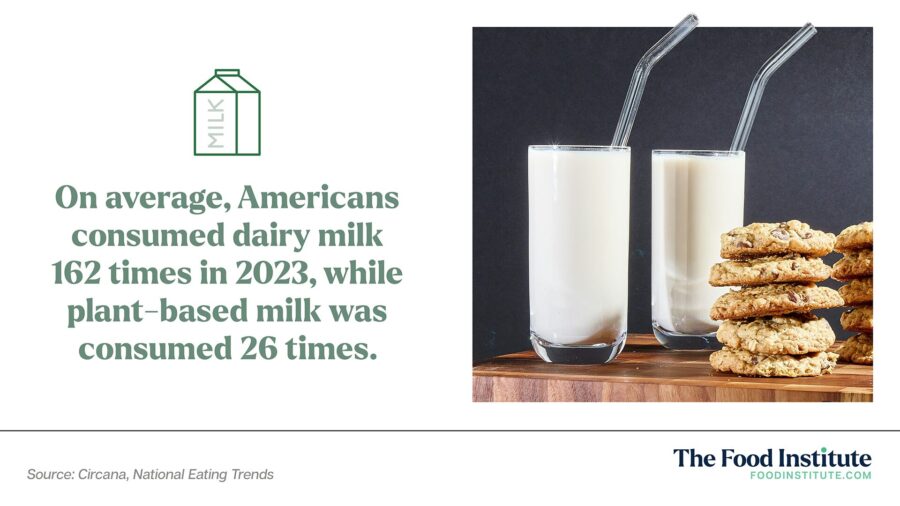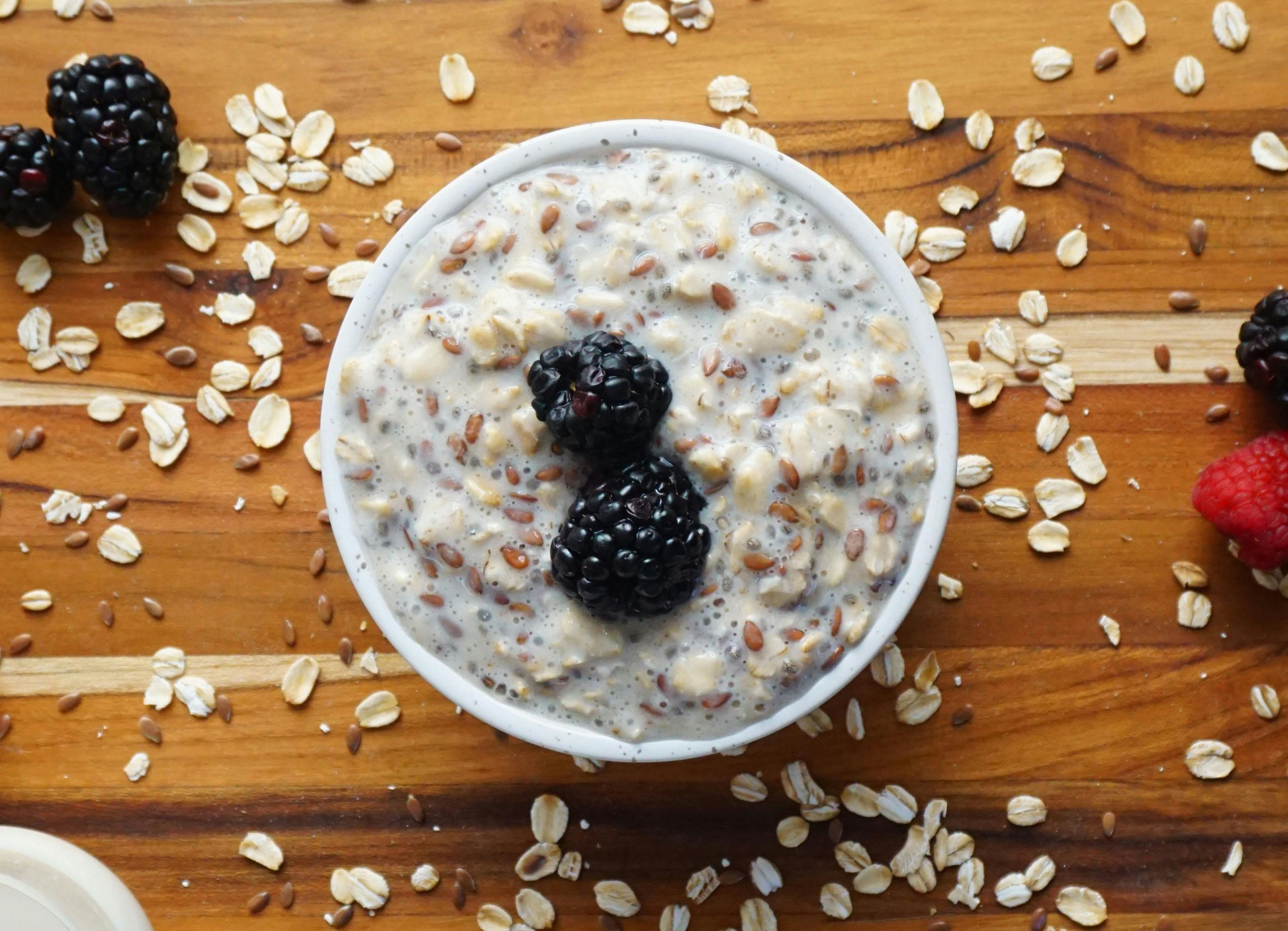Dairy producers are ramping up their efforts to scrub ‘milk’ from the labels of alternatives. But how significant is the term in plant-based marketing? Could waging “milk wars” significantly improve traditional dairy’s bottom line?
As The Wall Street Journal reports, a recent flood of plant-based milk alternatives — which is expanding to include sources like rice, flax, and hemp — has set off an aggressive defense by dairy milk producers.
In addition to utilizing marketing spoofs to steer consumers back to cows, dairy defenders hope to herd federal lawmakers into prohibiting any food made of nuts, seeds, plants, or algae from using dairy terms such as milk or cheese.
Their position is: If it doesn’t come from a lactating animal, it isn’t milk.
Republican Rep. Mike Simpson of Idaho, a big dairy state, is a sponsor of the bill. “I’m not trying to restrict what you can drink. Just label it what it is,” Simpson told WSJ. “I got no problem with almond ‘drink.’”
Industries Under Pressure
Per-capita fluid milk consumption has been trending downward in the U.S. for more than 70 years. Per USDA, consumers of all ages drank less milk as a beverage from 2003 to 2018 and challenges have persisted into the post-pandemic period.
Plant-based milk alternatives are accountable for a portion of this decline, albeit a small one. According to Circana, dairy milk had $15.8 billion in sales in 2023 compared with just under $2.5 billion for plant-based.
“Plant-based milk volume sales represent about 9% of refrigerated milk sales,” Darren Seifer, Industry Advisor, Consumer Goods and Foodservice at Circana, told The Food Institute.
Comparatively speaking, consumers also purchased less plant-based milk last year.
“In terms of sales, plant-based milk volume declined faster than traditional dairy,” said Seifer. “In the 52 weeks ending Jan. 28, 2024, plant-based milk volume sales declined 7.2%, while traditional dairy fell 1.4%.”
Furthermore, while traditional fluid milk is primarily consumed as a beverage, plant-based milks are more dependent on other categories such as cereal, coffee, and smoothies, placing further limitations upon alternatives.
“As consumers focus on more convenient meal solutions, they’re less likely to prepare meals with many ingredients,” Seifer added.
What’s in a Name?
Last year, the FDA proposed that plant-based beverages could still be called milk but should carry labels that explain the nutritional differences with cow’s milk. The idea was met with outrage among both dairy and nondairy advocates.
So how important is the “milk” label in marketing plant-based dairy alternatives?
According to Reilly Newman, founder of Motif Brands, stripping this terminology from dairy alternatives would have a negative psychological impact on the market as reception of plant-based drinks has been largely due to their connections to milk.
“The association we have with the word ‘milk’ conjures the familiarity of a creamy beverage that is nutritious and satisfying,” Newman told The Food Institute. “This frame of reference made the plant-based beverage sound more enticing as well as giving it the purpose to replace the necessity of milk either through desire or need.”
Removing the term could also imply a lower nutritional value or quality of the product as well as a different usage occasion or purpose, says Bhavik Sarkhedi of Content Whale.
“The term “milk” has a strong association with health, nutrition, and versatility, and it is preferred by consumers who seek plant-based alternatives for ethical, environmental, or dietary reasons,” Sarkhedi told The Food Institute.
By switching away from “milk” and replacing it with “drink,” plant-based alternatives may trigger confusion among consumers.
“ ‘Drink’ is far more general and loses the powerful frame of reference that ‘milk’ granted these beverages,” said Newman. “The brain doesn’t have a proper footing to create the meaning it needs to attach to the plant-based alternative.”
Variety Rules
As The Wall Street Journal observed, some companies like dairy giant Danone North America recognize the real estate potential in both camps.
And rightly so. Recent data from Brightfield Group shows that 23% of consumers choose non-dairy milk over cow’s milk “Just for Variety,” a response second only to “Better for Digestive Health.”
“Keep in mind most consumers of plant-based milks are also consuming traditional dairy milk, so we shouldn’t view this as an ‘us versus them’ situation,” Seifer concluded. “Marketers should focus on how consumers use these products together and ensure they meet consumers’ needs.”












